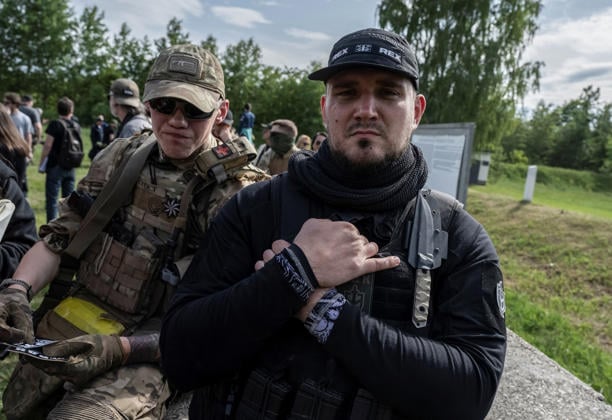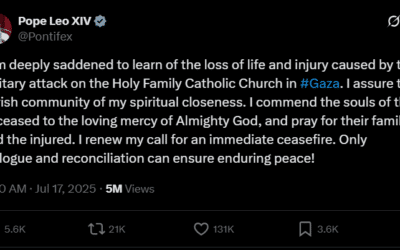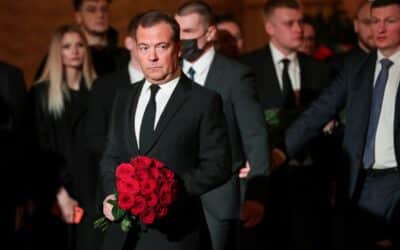A neo-Nazi-aligned militant leading cross-border raids into Russia using American military equipment told the Washington Post that his forces were escalating tensions with Moscow. An allied militia is preparing a new constitution for Russia after it helps to overthrow the Vladimir Putin government. While Kiev denies public support for the militia, behind the scenes Ukrainian officials are seeking to expand the operations.
The Russian Volunteer Corps, led by Denis Kapustin, is one of two paramilitary factions behind recent attacks on Russian soil. In an interview published on YouTube, he described the group’s operations as “full-scale attacks on the territory of the Russian Federation while it is under the occupation of the Kremlin regime,” adding, “The stakes are getting higher – and we are elevating them.”
The Post noted that members of the RVC have extremist ideals, including its leader. Kapustin “is a former Moscow fight promoter with a history of violent extremism. In 2019, he was banned from Western Europe for rightist sports hooligan activities,” according to the outlet. Kapustin described members’ ideology as “conservative, traditional and probably also socialist.” In a photo published by the Post, he is seen seated next to a fighter wearing a black sun, or ‘Sonnenrad,’ a common neo-Nazi symbol.
The other paramilitary unit launching attacks in Russia is the Freedom of Russia Legion (FRL), led by Ilya Ponomarev, a former member of the Russian State Duma. While the Post described FRL as a more moderate and “centrist“ org than the RVC, one of its members acknowledged that he was a part of a “radical rightist opposition group” before joining the legion. Most of the militia members are Russian nationals who have aligned with Kiev in the war, and many now live in Ukraine permanently. The Kremlin has labeled both the RVC and FRL as terrorist organizations, threatening stiff prison sentences for Russians who join.
The two groups work together, according to Ponomarev, who said “We have no time to debate politics. We are both here to defeat Putinism.” He noted that they share a common goal of forming a new Russian government from the “grass roots,“ and said he was working to draw up a new constitution.
The FRL leader went on to voice hopes that the cross-border attacks would help to win over the Russian people. “We want to win hearts and minds, but for now that is irrelevant. It will only become important the day we enter Moscow,” he explained. Another fighter in the legion echoed that sentiment, saying “We are their liberators and we want to free Russia.” As for Putin, he said, “This time we have to cut off the head of the tyrant.”
While the fighter insisted the FRL was not made up of “bandits and terrorists,” the Post said the RVC intends to intimidate Russian citizens with the border raids. The militia’s “aim is to give Russian civilians a taste of the death and destruction that President Vladimir Putin’s war has wrought on Ukraine, and to show that Putin is failing to keep the Russian motherland safe,” the outlet reported.
Kiev has sought to keep its distance from the paramilitaries, even as the legion claims to be working “in full cooperation“ with and “under the leadership of the Ukrainian command.” Its members report to high-level contacts in the Ukrainian military, and Kiev pays fighters’ salaries. Kapustin, for his part, says the RVC has no formal ties with Ukraine’s armed forces.
A former senior Ukrainian intelligence official told the Post that Kiev’s denials were only public, claiming that officials hope to expand support for the militias. Some of Ukraine’s Western backers may view such groups as problematic given their fighters’ open neo-Nazi views, as well as the risk they could escalate the Ukraine conflict into a direct war with Moscow.
Last month, the Financial Times reported that the RVC used American military equipment to attack Russia’s Belgorod region. The Kremlin also shared photos purporting to show the wreckage of several US-supplied armored vehicles destroyed during the border attacks, though Washington dismissed the images as ”fuzzy pictures on social media.” When additional photos appeared in subsequent news coverage, the State Department later said it was ”looking into those reports,” but has offered no further details since.








